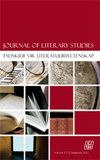Power and the Prison: A Foucauldian Perspective on Herman Charles Bosman’s Cold Stone Jug and Willemsdorp
IF 0.1
4区 文学
0 LITERARY THEORY & CRITICISM
引用次数: 0
Abstract
Although the political angle in Bosman’s writings as expressed in his language style are recognized, the prison writing as featured in his two late novels, Cold Stone Jug (1949) and Willemsdorp (written in 1951, first published posthumously in censored form in 1977 and in full in 1998), have received less scholarly attention, especially in terms of his political intent. The present study explores his preoccupation in these works with the brutality of the prison system and the power of the apartheid state. Foucault’s Discipline and Punish: The Birth of the Prison (1975/1995) was employed as a useful theoretical lens in examining Bosman’s critique of the prison system in South Africa and the abuse of power within it. An analysis of the details of police brutality and abuse of power in the censored and uncensored published versions of Willemsdorp has also been included, highlighting the applicability of Foucault’s theorisation on discipline and punishment in the penal system to Bosman’s texts. This study brings to the fore Bosman’s critique of the state, its officials, the unjust practices and the political intention behind his prison writing.权力与监狱:从福柯视角看赫尔曼·查尔斯·博斯曼的《冷石壶》和《威廉斯多普》
尽管博斯曼作品中的政治角度在他的语言风格中得到了认可,但他的两部晚期小说《冷石壶》(1949)和《威廉斯多普》(1951年写,1977年以审查形式首次出版,1998年全文出版)中的监狱写作受到的学术关注较少,特别是在他的政治意图方面。本研究探讨了他在这些作品中对监狱系统的残暴和种族隔离国家权力的关注。福柯的《规训与惩罚:监狱的诞生》(1975/1995)被用来作为一个有用的理论视角来审视博斯曼对南非监狱系统及其内部权力滥用的批评。对《威廉斯多普》经过审查和未经审查的出版版本中警察暴行和权力滥用细节的分析也被包括在内,突出了福柯关于刑罚系统中纪律和惩罚的理论对博斯曼文本的适用性。这项研究将博斯曼对国家、官员、不公正的做法以及他的监狱写作背后的政治意图的批评带到了人们面前。
本文章由计算机程序翻译,如有差异,请以英文原文为准。
求助全文
约1分钟内获得全文
求助全文
来源期刊

Journal of Literary Studies
Multiple-
CiteScore
0.50
自引率
0.00%
发文量
0
期刊介绍:
The Journal of Literary Studies publishes and globally disseminates original and cutting-edge research informed by Literary and Cultural Theory. The Journal is an independent quarterly publication owned and published by the South African Literary Society in partnership with Unisa Press and Taylor & Francis. It is housed and produced in the division Theory of Literature at the University of South Africa and is accredited and subsidised by the South African Department of Higher Education and Training. The aim of the journal is to publish articles and full-length review essays informed by Literary Theory in the General Literary Theory subject area and mostly covering Formalism, New Criticism, Semiotics, Structuralism, Marxism, Poststructuralism, Psychoanalysis, Gender studies, New Historicism, Ecocriticism, Animal Studies, Reception Theory, Comparative Literature, Narrative Theory, Drama Theory, Poetry Theory, and Biography and Autobiography.
 求助内容:
求助内容: 应助结果提醒方式:
应助结果提醒方式:


